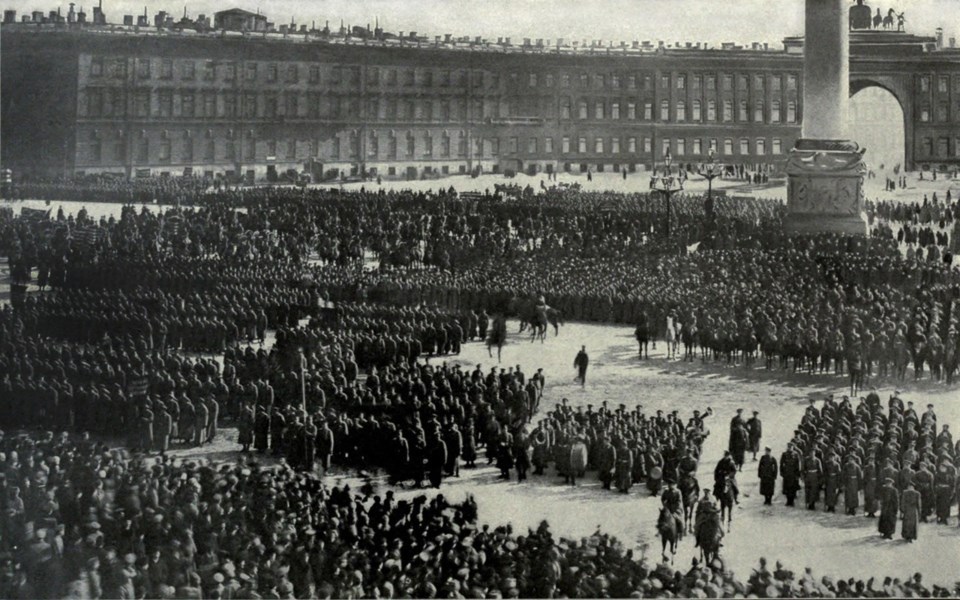China Miéville, a novelist I much admire, has published a history of the "October Revolution" to mark its 100th anniversary (which was actually on Nov. 7, since the Russians were still using the Julian calendar in 1917). It had an unusual effect on me. It made me question whether I was right about the utter futility of that revolution.
We all know it ended horribly: first civil war and famine, then three decades of lies, oppression and mass murder — Stalin, the Great Purge, the Gulag — followed after Stalin's death by the "era of stagnation," a dying fall of three and a half decades of petty tyranny and economic failure. I got to know the Soviet Union well as a journalist in the last decade of its existence, and I don't miss it a bit.
Miéville doesn't have any illusions about how early and how badly the revolution went wrong; what he questions is the inevitability of all that. In an article in The Guardian last May, he quoted the lifelong revolutionary Victor Serge, born in Belgium to an exiled Russian revolutionary couple, who travelled to Russia to serve the Bolshevik revolution and was later persecuted and jailed by the Stalinists.
"It is often said that 'the germ of Stalinism was in Bolshevism from its beginning,'" Serge wrote in 1937. "Well, I have no objection. Only, Bolshevism also contained many other germs, a mass of other germs, and those who lived through the enthusiasm of the first years of the first victorious socialist revolution ought not to forget it.
"To judge the living man by the death germs which the autopsy reveals in the corpse — and which he may have carried in him since his birth — is that very sensible?" Serge was insisting that it could have come out differently and better, and Miéville is agreeing with him.
Well, I dunno. I can remember sitting in the old Akademicheskaya Hotel in Moscow in the mid-1980s, flicking paper-clips at the cockroaches and writing an angry piece about how much better off the Russians would be if the Bolsheviks had not seized power in late 1917.
After all, Russia had a rapidly developing economy at the start of the 20th century, about on a par with Italy's. If the "bourgeois" democratic revolution of early 1917 had survived and normal capitalist development had resumed in Russia after the First World War ended, Russians might be as free and as prosperous as Italians today.
Let's put all this in context. For several hundred thousand years all human beings lived in circumstances of absolute equality. All our ancestors were hunter-gatherers who lived in small bands, rarely more than a hundred people, and made all their decisions by consensus: there were literally no leaders, and powerful social customs blocked any take-over bids by ambitious men.
Then we invented agriculture, developed into the mass civilizations — and every one of them turned into a brutal hierarchy of power and privilege. It probably had to be like that, because these were complex societies where somebody had to make the decisions and enforce them. A million people cannot make those decisions by consensus, especially if they are almost all illiterate.
And finally, about two-and-a-half centuries ago, it became theoretically possible for mass societies to make their decisions democratically: they were literate, they had the printing press, and so they could all talk to one another. We immediately began to reclaim our old heritage of equality through revolutions, beginning in the United States and then France — and the Bolshevik revolution does belong to that sequence.
It was extreme, of course, but that's because it aimed at full equality, not the halfway houses of democracies with equal opportunity, but huge practical differences of income and privilege that most of us live in today. This was not some petty economic argument between the followers of Hayek and Keynes. It was about the big issue: equality.
And most of us have concluded, partly on the evidence of the Russian revolution, that modern mass societies have to settle for what you might call managed inequality. The social, political and human cost of trying to make old-style absolute equality work is just too high. But you can see why Miéville rages against that fact.
Gwynne Dyer is an independent journalist whose articles are published in 45 countries.




